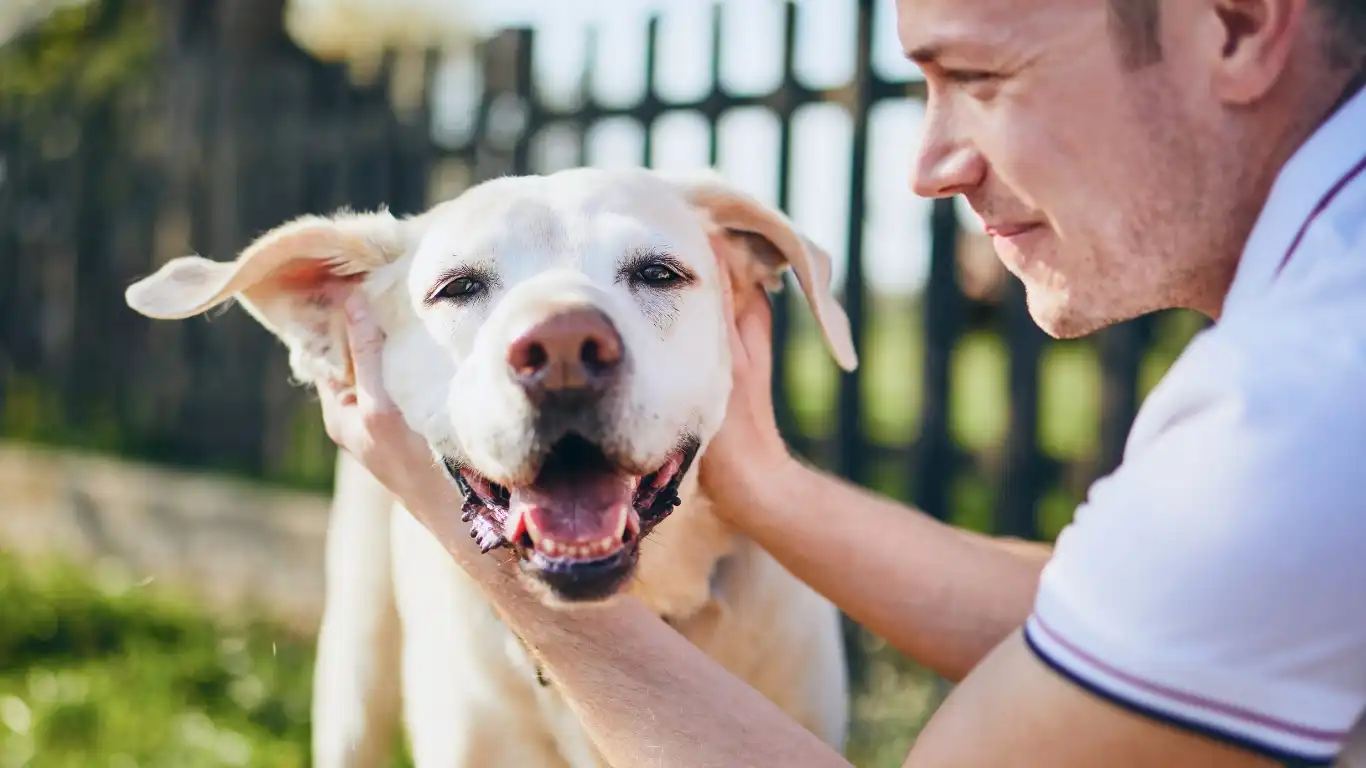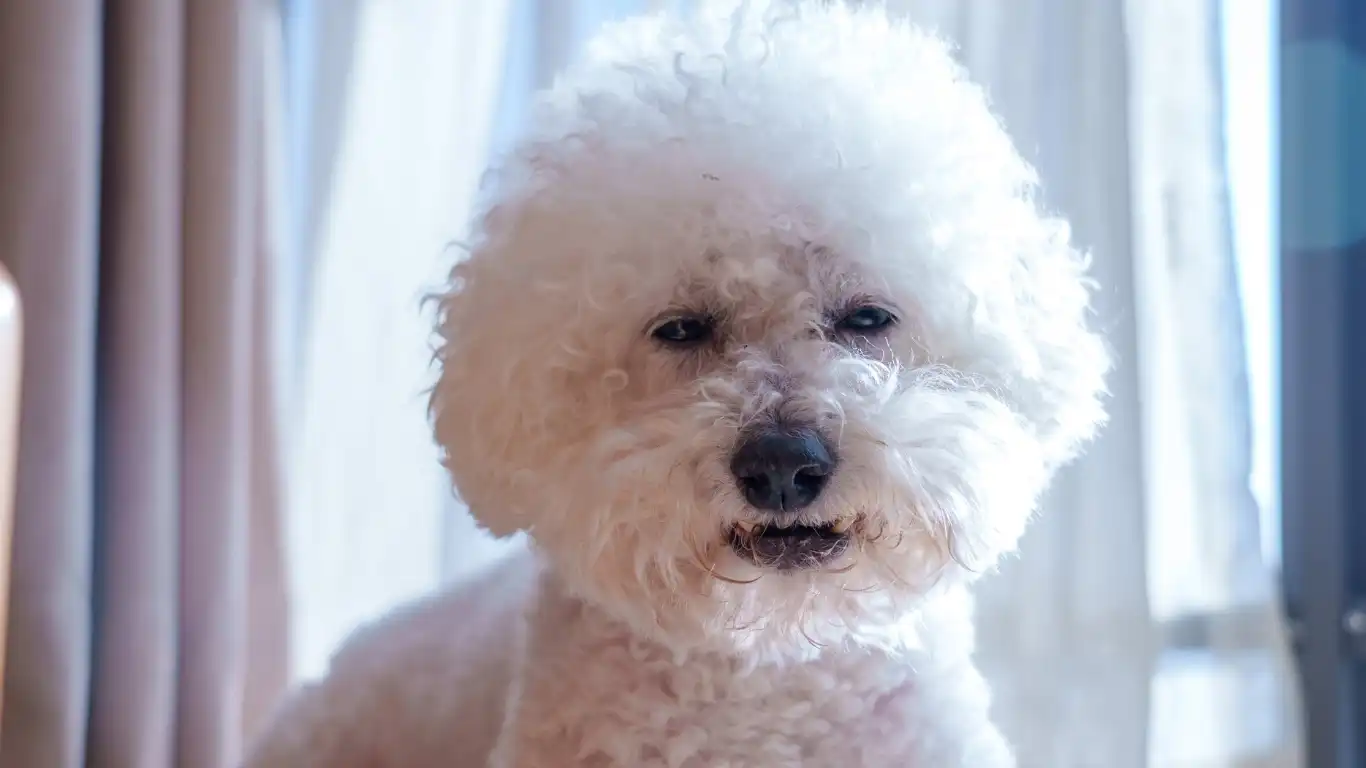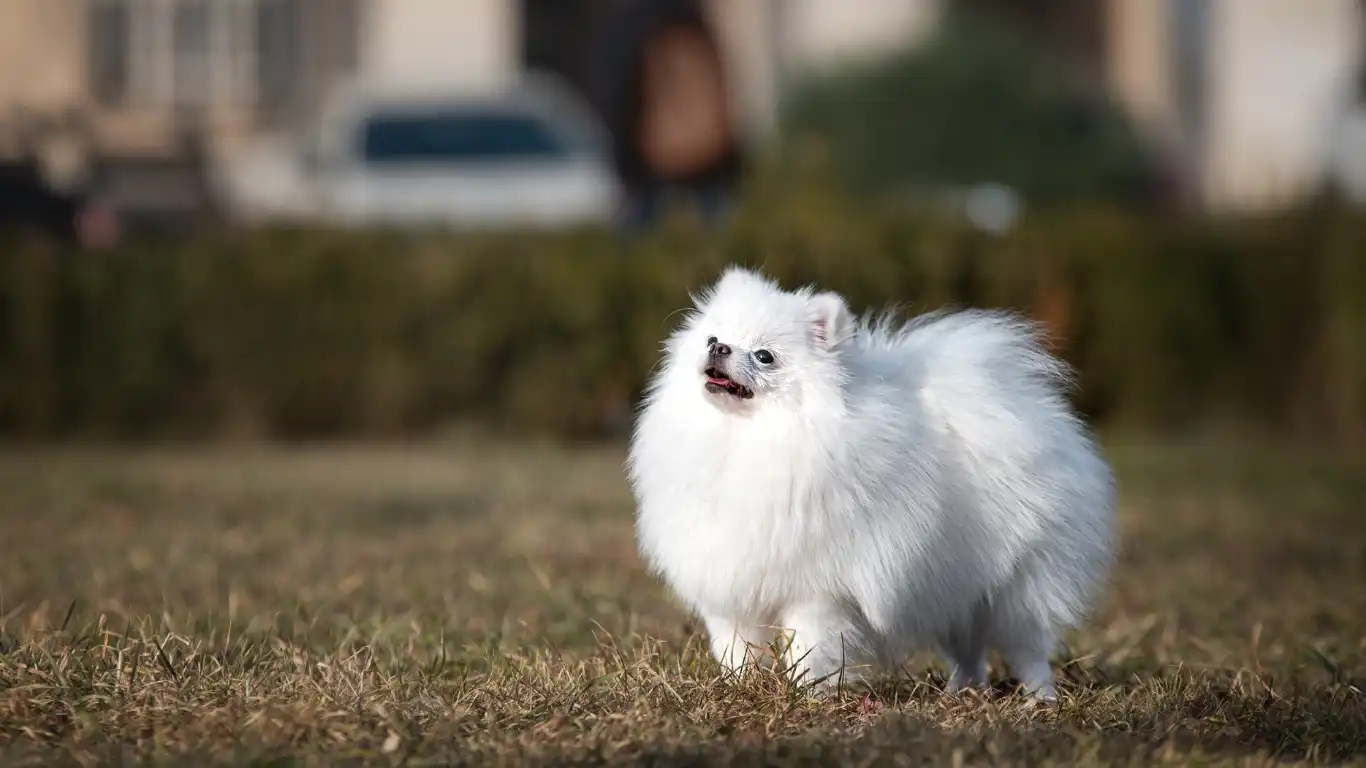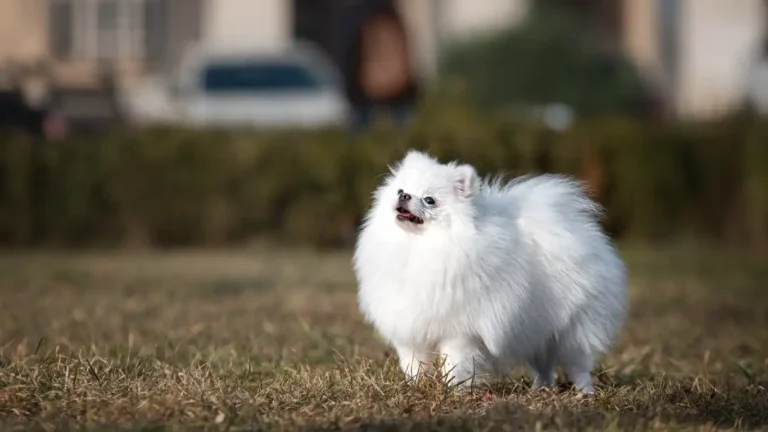Best Natural Ways to Freshen a Dog’s Breath That Actually Work
Let’s be real—nothing ruins puppy kisses faster than a blast of bad dog breath. As a veterinary technician and pet nutrition nerd (yep, that’s me!), I’ve seen my fair share of stinky situations walk into the clinic. If you’re here, you’re probably searching for the best natural ways to freshen a dog’s breath without always reaching for chemical-laden products or expensive dental procedures. Good news? You’re in the right place. Whether it’s your pup’s diet, dental hygiene, or just some good old doggie habits that need tweaking, I’ve got you covered with tried-and-true, vet-approved tips that work—and don’t worry, they’re all totally natural.
Why Does My Dog’s Breath Smell So Bad?

First things first—let’s talk about why your pup might be smelling more sewer than snuggly. There’s actually a whole bunch of reasons a dog’s breath can get funky. And no, it’s not always because they got into something gross (although that happens more than we’d like to admit). Here are a few common culprits I see in practice:
- Plaque and Tartar Build-Up: Just like us, dogs can get gunky build-up on their teeth. Left unchecked, it becomes a breeding ground for bacteria—and that’s a recipe for bad breath.
- Gum Disease: Gingivitis or more serious periodontal issues can make your dog’s mouth smell awful. And it’s more common than you’d think.
- Poor Diet: What goes in definitely affects what comes out (including from your pup’s mouth). Low-quality food or snacks high in sugar or fillers can worsen breath.
- Underlying Health Issues: Sometimes, smelly breath is a red flag for things like diabetes, kidney disease, or digestive problems.
I’ve had clients come in thinking their dog just needed a breath mint, only to find out their furry friend was dealing with early-stage periodontal disease. Moral of the story? Don’t ignore the funk!
Best Natural Ways to Freshen a Dog’s Breath

1. Start with a Fresh, Clean Diet
This one’s close to my heart. As someone who’s specialized in pet nutrition, I’ve seen major breath improvements just by switching dogs to a higher-quality diet. Kibble loaded with grains and artificial ingredients? That’s like junk food for dogs. Try swapping to a grain-free or raw food diet—ideally one that’s high in whole ingredients like real meat, sweet potatoes, and leafy greens.
If raw isn’t your thing, there are also cooked, human-grade meal services that work wonders. I’ve had pet parents come back after two weeks of cleaner feeding and say, “It’s like night and day with her breath!” It’s not magic—it’s nutrition doing its thing.
2. Brush Those Canines (Yes, Really)
I know, I know. Brushing your dog’s teeth sounds like a whole event. But hear me out—it’s one of the most effective ways to keep their breath fresh and prevent plaque build-up. You don’t have to do it daily (although that’s ideal), but even 2–3 times a week makes a big difference. Make it part of their routine, like nail trims or ear checks.
And please, only use dog-safe toothpaste! Human toothpaste contains xylitol and fluoride, which can be toxic to dogs. Look for ones with natural enzymes or breath-freshening herbs like parsley or coconut oil.
3. Chews and Bones: Nature’s Toothbrush
There’s a reason so many dogs instinctively chew—it’s how they clean their teeth in the wild. Raw bones (safely sourced and the right size for your dog), dried sweet potato chews, or naturally dehydrated treats help scrape off gunk while keeping your pup entertained.
One of my go-tos? Raw marrow bones from the freezer. They’re a double-whammy: great for teeth and packed with minerals. Just supervise while they’re chewing, and skip cooked bones—those can splinter and cause serious harm.
4. Try Natural Breath-Freshening Herbs
Herbs aren’t just for your spice rack—they can help with doggie breath too! Some of my favorites include:
- Parsley: Loaded with chlorophyll, it neutralizes odors and supports digestion.
- Mint: A little goes a long way for freshness. Sprinkle chopped mint on meals or mix into treats.
- Cilantro: Gentle detoxifier with antibacterial properties.
Sometimes I’ll even make homemade frozen treats using yogurt, parsley, and a touch of mint. My clients’ dogs go nuts for them, and you’d be shocked at how well it works over time.
5. Probiotics for the Win
Gut health and breath? Yep, they’re connected. An imbalanced microbiome can cause digestive issues, which often result in—you guessed it—bad breath. I usually recommend adding a dog-safe probiotic to their meals. You can find natural powders or even fermented foods like kefir or raw goat milk (if your pup tolerates dairy).
Bonus: It also helps with allergies, digestion, and overall immune health. Talk about a win-win!
Understanding the Root Cause of Chronic Bad Breath

If you’ve tried the usual tricks and your dog’s breath is still unbearable, it might be time to dig a little deeper. Chronic halitosis (that’s the fancy vet word) can point to underlying issues. As a vet tech, I’ve flagged more than a few cases of kidney disease and diabetes just from the way a dog’s breath smelled.
Here’s what I always recommend to my clients:
- Get a dental exam: Your vet can check for signs of periodontal disease, abscesses, or infections.
- Run bloodwork: Especially in older dogs or if the breath smells “sweet” or “urine-like.”
- Evaluate their poop (seriously): Digestive imbalance often shows up there too.
It’s all about putting the puzzle pieces together. And don’t worry—you’re not alone in figuring it out. Breath is just a signal; we just need to listen to what it’s saying.
Hydration: The Overlooked Hero of Fresh Dog Breath

Okay, I’ll be honest—this one flies under the radar way too often. But staying properly hydrated is a total game-changer when it comes to the best natural ways to freshen a dog’s breath. Think about it: saliva plays a huge role in flushing bacteria out of the mouth. If your pup isn’t drinking enough water, things get stagnant, and bad breath bacteria multiply like wild.
In the clinic, I’ve had dogs come in with dry, sticky mouths and their breath practically knocked me over. After just a week of tracking water intake and adding moisture-rich food like bone broth or fresh veggies? Boom—noticeably better breath. Here are a few easy hydration hacks:
- Always keep fresh, clean water available (and wash bowls daily—biofilm is real!).
- Add water or bone broth to kibble—great for picky drinkers.
- Incorporate hydrating treats like cucumber slices or watermelon (no seeds!).
Oh, and quick tip: avoid plastic bowls. They can harbor bacteria and odors. Stainless steel or ceramic is the way to go—trust me, your dog’s mouth will thank you.
Homemade Natural Dog Breath Treats

Making your own treats at home is not only a fun way to bond with your pup, but it’s also a smart way to sneak in breath-freshening ingredients naturally. Plus, you control what goes into them—no weird additives or hidden sugars.
One of my go-to recipes that clients ask for all the time goes like this:
Minty Parsley Pup Bites
- 1 cup fresh parsley, chopped
- 1/2 cup fresh mint leaves
- 1/4 cup plain Greek yogurt
- 1 tablespoon coconut oil
- 1/4 cup oat flour (or more as needed)
- Preheat oven to 325°F (163°C).
- Blend all ingredients in a food processor until a dough forms.
- Roll into small balls or press into silicone molds.
- Bake for 15–20 minutes, or until slightly firm.
- Let cool and store in the fridge for up to a week.
The herbs work as natural deodorizers, the yogurt adds probiotics, and the coconut oil helps reduce oral bacteria. Plus—they smell amazing. You might even be tempted to try one yourself (no judgment if you do, I’ve been there!).
Incorporating Coconut Oil in Your Dog’s Routine

Let’s talk about coconut oil—aka the holy grail of natural pet remedies. I recommend it constantly because it’s just that versatile. Not only does it help kill harmful bacteria in the mouth, but it also promotes shiny coats, healthy digestion, and even boosts immunity.
You can use it a few different ways:
- Spoon it straight: Most dogs love the taste. Just a teaspoon for small pups or a tablespoon for larger breeds is plenty.
- Use it as toothpaste: Dip a toothbrush or gauze-wrapped finger in coconut oil and gently scrub your dog’s teeth.
- Mix into meals: Helps with absorption of fat-soluble vitamins too!
In my experience, dogs with mild halitosis saw major improvement after just a couple of weeks of daily coconut oil. And hey, it smells way better than most commercial dog breath products, so there’s that bonus!
When to See Your Vet (Even if You’re Going All-Natural)
I’m all about holistic care and going natural when it makes sense—but as someone who’s worked hands-on with animals for years, I have to stress that there’s a line. If your dog’s breath smells really bad, especially if it’s sweet (like acetone) or metallic, it could be a red flag. Don’t try to mask it—dig deeper.
Here’s when I urge pet parents to book that appointment:
- Bad breath suddenly worsens or comes on quickly
- Excessive drooling or signs of mouth pain (pawing, chewing oddly)
- Loss of appetite or unusual weight loss
- Visible tartar, inflamed gums, or broken teeth
Sometimes, what seems like “just bad breath” is actually a sign of oral tumors, infected teeth, or systemic illness. Early intervention is key—and trust me, your dog won’t tell you something’s wrong. But their breath might.
Natural Dental Additives: Yay or Nay?
I get asked about water additives and natural dental sprays all the time, and here’s my honest take: they can help, but they’re not magic on their own. I’ve seen decent results with products that contain enzymes, chlorophyll, and essential oils like thyme or peppermint (formulated for pets, of course!).
But don’t let them be your only plan of attack. I tell clients to treat them as part of the routine—not the whole routine. Combine with brushing, chews, and diet for real results.
Supporting Long-Term Oral Health Naturally
At the end of the day, the goal isn’t just fresher breath—it’s better overall health. Everything’s connected: mouth, gut, skin, even behavior. I’ve had dogs act more energetic and playful once we cleaned up their breath and got their oral health back on track. It’s wild what a difference it makes.
So if you’re looking for the best natural ways to freshen a dog’s breath, think bigger than mints and gimmicks. Go holistic. Go consistent. And go with what works best for your dog’s lifestyle and needs.
Coming up, we’ll keep diving deeper into advanced natural care techniques, daily maintenance hacks, and even some surprising vet-recommended tools that actually work.
Daily Habits That Naturally Support Fresher Dog Breath

So by now, we’ve gone over a bunch of natural approaches to freshen your dog’s breath—everything from diet to dental chews and coconut oil magic. But let’s talk about the real secret sauce: consistency. If I had a dollar for every time a client asked, “Why does my dog’s breath stink again?” after skipping their pup’s routine for a few weeks… let’s just say I’d be writing this from a beach in Maui.
The truth is, it’s not about doing one big thing once. It’s about weaving simple, daily habits into your dog’s lifestyle. Here’s what I personally do with my own crew of dogs (yes, I have three—it’s a fun house):
- Quick daily mouth check: I just lift the lips and peek at the gums and teeth. No pressure, just a glance.
- Hydration reminder: Clean their bowls daily and keep fresh water in multiple spots.
- Mini dental wipe-down: On busy days, I use natural dental wipes instead of brushing. Still helps remove buildup!
- Herbal add-ins: Sprinkle parsley or mint on top of meals or mix into frozen treats weekly.
And honestly, my dogs love the routine now. They come running when I pull out their toothbrush or treats because they know it’s bonding time. Make it fun. Make it rewarding. That’s how habits stick.
How Stress and Environment Affect Your Dog’s Breath

This part might surprise you, but yes—stress can literally stink. Dogs under constant stress or anxiety often develop gastrointestinal issues, drool excessively, or stop drinking enough water. All of which can lead to—you guessed it—nasty breath.
One case I’ll never forget involved a sweet little Shih Tzu who had chronic halitosis despite a spotless diet and clean teeth. After some digging, we realized the issue wasn’t dental at all. She was extremely anxious when left alone, and the stress was messing with her gut flora. Her breath improved significantly once her human started using calming supplements and puzzle toys for enrichment. Wild, right?
Here are a few ways to support your dog’s emotional wellness:
- Daily walks and outdoor play (fresh air = better breath and better mood!)
- Interactive toys to prevent boredom-based chewing and drooling
- Soothing scents like lavender in a diffuser—just make sure it’s pet-safe
- Consistent routines: Dogs thrive on predictability, which lowers anxiety
Keeping your dog mentally and emotionally balanced truly shows up in their overall health—including what’s coming out of their mouth. It’s all connected!
Supplements That Naturally Support Oral Health
Let’s chat about a few supplements I’ve personally seen great results with in practice. These aren’t quick fixes, but when used consistently, they support the internal systems that influence breath, digestion, and oral health. Always chat with your vet before starting anything new, but here are a few worth exploring:
- Chlorophyll: Often found in liquid drops or green powders, chlorophyll helps deodorize from the inside out. Great for breath, skin, and digestion.
- Seaweed (Ascophyllum nodosum): This marine superfood reduces plaque and helps break down tartar naturally. Some dental powders contain it as the star ingredient.
- Digestive enzymes: These help break down food more efficiently, reducing stinky burps and bad breath caused by poor digestion.
- Probiotics: We’ve talked about this already, but it’s worth repeating. A healthy gut = a fresher mouth.
I’ve seen even senior dogs with long-term dental issues benefit from a combo of seaweed-based powders and probiotics. It’s not instant, but after 4–6 weeks? Total transformation.
What to Avoid If You’re Going the Natural Route
Now, let’s be real—there’s a lot of junk out there pretending to be “natural” but is anything but. I always remind my clients to read labels and keep an eye out for these common no-nos:
- Artificial flavoring and colors: Completely unnecessary and often irritating to sensitive systems.
- Xylitol: This sugar substitute is toxic to dogs. Double-check every dental product for it.
- Alcohol-based sprays: Harsh, drying, and potentially harmful over time.
- Over-brushing: Sounds weird, but brushing too hard or too often can damage gums. Gentle and consistent is better than aggressive and random.
Natural care is all about supporting the body—not overwhelming it. Less is more, especially when you’re building a long-term wellness plan for your pup.
Wrapping It All Up: Your Dog Deserves Fresh, Healthy Breath
So there you have it—everything I’ve learned, recommended, and used personally to tackle dog breath naturally. The journey to fresher kisses and happier pups doesn’t require fancy gimmicks or chemical-loaded sprays. It’s about building simple, sustainable habits around diet, hygiene, gut health, and emotional wellness.
As a vet tech and dog mom myself, I can say with full confidence: once you start applying these natural methods consistently, the difference is real. Your dog will feel better, smell better, and probably be more eager to snuggle, too. (Win-win, right?)
And hey, if your dog could talk, I guarantee they’d be thanking you for choosing a gentle, thoughtful approach instead of masking the problem. That’s the beauty of natural care—it supports them from the inside out.
References
- American Veterinary Medical Association (AVMA)
- National Center for Biotechnology Information (NCBI)
- PetMD
- American Kennel Club (AKC)
- Dogs Naturally Magazine
Disclaimer
This article is intended for educational purposes only and is not a substitute for professional veterinary advice. Always consult your veterinarian before making changes to your dog’s health routine or introducing new supplements, treatments, or diets. Every dog is unique, and what works for one may not work for another.





